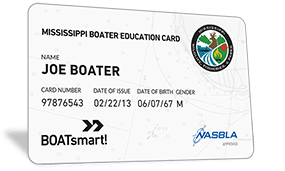
WHO NEEDS AN MISSISSIPPI BOATER EDUCATION CERTIFICATE?
Boat operators in the state of Mississippi who were born on or after July 30th, 1980 are required to obtain a Boating Education Certificate to legally operate a boat in Mississippi.
Excellent!
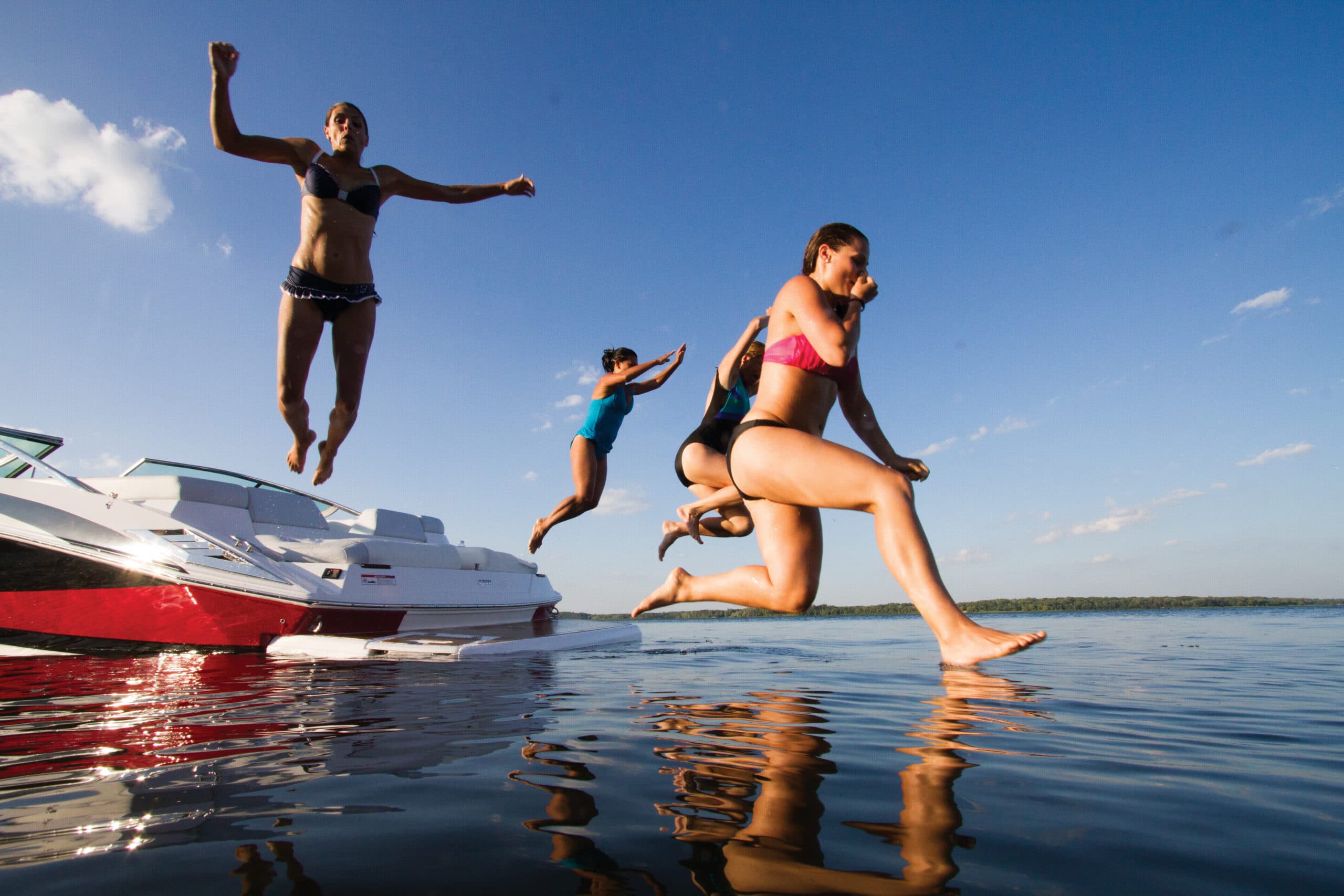

Official Mississippi boating course
The BOATsmart! Mississippi Boater Education Course is approved and accredited by Mississippi Wildlife, Fisheries & Parks. With more than 3,000 Five Star Reviews, we’re proud to be recognized as an official Mississippi State Boating Course and the choice of boaters in Mississippi.
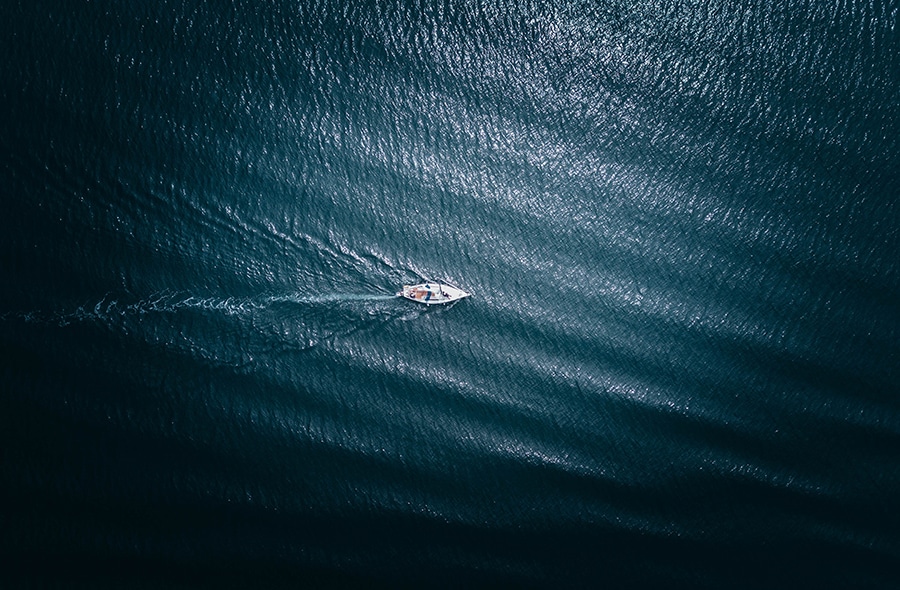

NASBLA & Coast Guard Approved
The BOATsmart! Mississippi Boating Safety Course is officially recognized by the United States Coast Guard as meeting the standards of the National Recreational Boating Safety Program. BOATsmart!’s online Mississippi Boating Safety Course is approved by the National Association of State Boating Law Administrators (NASBLA) as it meets and exceeds U.S. Boating Education Standards. NASBLA develops education standards for boating safety and represents boating law administrators in all 50 states and U.S. territories.
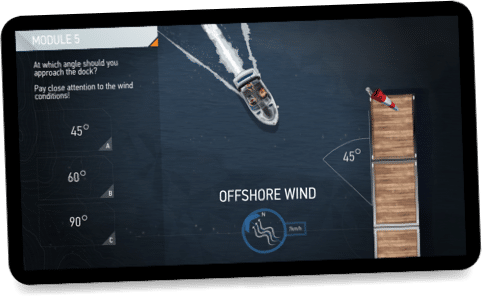
Watch, Listen & Learn
From anywhere, on any device at any time.
Our animated and narrated Boating Safety Course is perfect for all ages. Study from your Smartphone, Tablet or Desktop and switch between devices at any time. BOATsmart! automatically tracks your progress so you can study at your own pace.

MISSISSIPPI BOATER EDUCATION CERTIFICATE FAQS
WHAT IS A MISSISSIPPI BOATER EDUCATION CERTIFICATE
A Mississippi Boater Education Certificate proves that you’ve obtained the knowledge needed to safely operate a motorized boat on Mississippi waterways. All boat operators in Mississippi who were born after June 30th 1980 are required to obtain a Boater Education Certificate to legally operate a boat within the state.
AGE AND HORSEPOWER RESTRICTIONS
Children who are less than 12 years of age are not permitted to operate any boat within the state of Mississippi unless they have obtained a Boating Education Certificate, and are supervised on board by a person who is at least 21 years of age.
WHERE CAN I GET MY MISSISSIPPI BOATER EDUCATION CERTIFICATE?
You can get your Mississippi Boater Education Certificate by completing the Official BOATsmart! Course online. Once you successfully complete the online study guide and final exam, you can print a temporary card immediately. BOATsmart! will mail your permanent card within 4 weeks.
HOW OLD DO I HAVE TO BE TO GET A BOATER EDUCATION CERTIFICATE IN MISSISSIPPI?
There is no minimum age in Mississippi to complete the online boater education course and get certified.
HOW LONG DOES IT TAKE TO GET MY BOATING LICENSE?
It takes a minimum of 3 hours to get your Mississippi Boating Education Certificate online. Once you’ve completed the online course and official test, you can print a temporary card and go boating right away. Your permanent card will be mailed to you by BOATsmart! within 4 weeks.
CAN I GET REFRESHER LESSONS AFTER TAKING THE MISSISSIPPI BOATING COURSE?
BOATsmart! Offers a free online Knowledge Base of the most up-to-date Mississippi boating laws and regulations, including boating equipment requirements, navigation, and right-of-way regulations and restrictions that may apply on Mississippi State waterways.
DO I NEED A LICENSE TO RENT A BOAT IN MISSISSIPPI?
Any person born after June 1st, 1980 is required to obtain a Boating Education Certificate in order to rent and operate a boat within the state.
Boating and alcohol in Mississippi
Mississippi boating and alcohol laws
It is illegal to operate any motorized boat, powered by an engine of more than 25 horsepower, or a personal watercraft (PWC) while under the influence of alcohol, a controlled substance or another illegal chemical.
In Mississippi, a person is considered to be under the influence if:
- They have a Blood Alcohol Concentration (BAC) level of 0.08 or higher.
- They are under the influence of alcohol.
- They are under the influence of any substance that impairs their ability to operate a boat.
In Mississippi, a person convicted of operating a boat while under the influence will be subject to the following penalties:
Penalties for drinking and boating
First offense: May receive a fine up to $1,000 and 2 days imprisonment.
Second offense: May receive a fine, imprisonment and the loss of their boat operating privileges for 1 year.
More severe penalties exist for subsequent convictions.
Any person who causes the death or serious injury of another person while operating a boat while under the influence will be guilty of a felony upon conviction.
Mississippi Boating Age Requirements

Less than 12 years of age
Boat operators in Mississippi who are less than 12 years of age are not permitted to operate any boat within the state unless they have obtained a Boating Education Certificate and are supervised on board the boat by a person who is at least 21 years of age.

Mississippi's Boating Fines

Operating under the influence
Up to $1000

Failure to carry Mississippi Boater Education Certificate
Up to $250

Failure to Report a Boat Accident
Up to $1000

Reckless or Negligent Boat Operation
U tp $250

Ahe Restriction Violations
Up to $50
General Mississippi boating FAQs
Who regulates boating laws in Mississippi?
The Mississippi Department of Wildlife, Fisheries & Parks is responsible for regulating boating laws in the state of Mississippi.
Boating Emergencies:
Call 911 to report a boating emergency in Mississippi
WHO ENFORCES MISSISSIPPI’S BOATING LAWS?
Mississippi’s boating laws are enforced by:
- Mississippi Department of Wildlife, Fisheries and Parks Officers.
- Mississippi Department of Marine Resources Officers.
- The Coast Guard (on federal waters).
- Other authorized peace officers.
Law enforcement in the state of Mississippi have the authority to stop and board boats to ensure they are in compliance with state and federal laws.

How to register a boat in Mississippi
MISSISSIPPI BOAT REGISTRATION
In order to legally operate a motorized boat or sailboat in the state of Mississippi, you must obtain a Certificate of Number (registration card) and validation decals. The Certificate of Number must be on board and be available for inspection by an enforcement officer during boat operation.
Which boats require registration?
- All motorized boats.
- All sailboats (with or without a motor).
The Certificate of Number and validation decals may be obtained by submitting an application and fee to the Mississippi Department of Wildlife, Fisheries, & Parks (MDWFP). Boat registrations are valid for 3 years and expire on the last day of the month in which the original or transferred certificate was received.
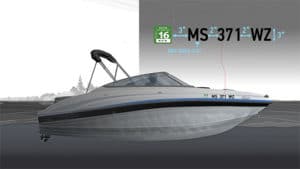
Boats in Mississippi are required to correctly display their registration number and validation stickers.
Registration numbers and stickers must be displayed as follows:
- The numbers must be applied as a decal, painted or permanently affixed to each side of the boat’s bow (boat owners are not permitted to display any other numbers in this area).
- The numbers must be in bold block letters that are at least 3 inches high and in a color that contrasts with the color of the boat.
- The numbers must be separated from the letters by a hyphen or by an equivalent space
- The numbers must be read from left to right on both sides of the bow.
- Validation decals must be affixed on both sides of the boat, preceding the prefix letters of the registration number and 6 inches from the registration number.
Mississippi’s lifejacket laws
All boats on Mississippi waters are required to have at least one, Coast Guard-approved, wearable, Type I, II, III or V life jacket or PFD aboard the boat for each passenger.

Boats more than 16 ft in length
Boats more than 16 ft in length must carry one wearable life jacket (Type I, II, III or V) for each person on board. Additionally, a throwable device must be carried on board all boats that are more than 16 feet in length.

Personal Watercraft
Operators of personal watercraft, passengers and anyone being towed behind a PWC must wear a U.S. Coast Guard-Approved Type I, II or III life jacket.

Children 12 years of age and under
In Mississippi, passengers 12 years of age and under are required to wear a Coast Guard-approved Type I, II or III life jacket while on board any boat that is under 26 feet in length, while the boat is underway, unless that boat is moored, anchored, or aground.
Mississippi’s Personal Watercraft Regulations
HOURS OF OPERATION
PWCs may only be legally operated during daylight hours
AGE REQUIREMENTS
Operators who are under the age of 12 are not permitted to operate a PWC unless they have successfully completed a boating safety course and are accompanied by an adult who is 21 years of age or older.
PWC Regulations
- While towing, PWCs must always have an additional person on board, who is more than 10 years of age, as a designated spotter or ‘observer’ for the person being towed
- PWCs may not be operated within 100 feet of a skier or another vessel
- All PWC operators must follow boater education requirements to legally operate
Environmental Protection
Non-native Aquatic Species
American waterways have been under threat from foreign aquatic plants, fish and invertebrates. Aquatic Nuisance Species (ANS) are transferred from boats and boating equipment that originate from external waterways. Once introduced to a new waterway, the ANS will detach from the contaminated boat and spread like wildfire. ANS include: Milfoil, Zebra Mussels and Quagga Mussels.
Why are ANS such a serious threat?
- They have no natural predators in U.S. waters.
- Some ANS can actually survive out of water, making transfer easy.
- They reproduce quickly.
- They have harmful effects on the native wildlife, habitats and ecosystems.
For more information on Aquatic Nuisance Species, visit: www.protectyourwaters.net/impacts.php.
Be sure to report new infestations of non-native aquatic species to the U.S. Fish and Wildlife Service at (209) 946-6400 or report to New York State online at https://www1.nyc.gov/site/dep/environment/invasive-species-report-form.page
Help prevent the spread of non-native species
- Inspect all surfaces of your boat and remove aquatic plants or animals before leaving any body of water.
- Ensure you flush raw-water cooling systems and clean sea-strainers before moving your boat from one body of water to another.
- Empty and dry any buckets before leaving a body of water.
- Remove any plant fragments from bait wells, fishing gear, trailers, dive gear or props.
- Dispose of plant fragments and bait into a garbage receptacle on land.
- Avoid chopping vegetation with your boat’s propeller.
- Clean and dry all live-wells prior to transporting your boat.
- Drain all water from your motor and bilge and dry all areas.
- Thoroughly wash your boat, including the hull, before putting it into a new body of water.
- Refer to specific drying times.
Infestations of non-native species
Report new infestations of non-native aquatic species to the U.S. Fish and Wildlife Service at (209) 946-6400.
Magnolia State, Blue Waters, Good Times

Mississippi Boating Destinations
BOATING IN MISSISSIPPI
With its name-sake being the second longest river in North America, it’s no surprise that MS offers some awesome boating opportunities. For lake-boating opportunities, boaters can check out destinations such as Sardis Lake in Lafayette County, Grenada Lake in Grenada County.
Looking for a paddling destination? Check out the 80 mile long Pascagoula River, and find out why it’s known as the “Singing River”.
FISHING IN MISSISSIPPI
With 119 public lakes, 123,000 miles of streams and Mississippi’s Gulf Coast, the state has no shortage of fishing opportunities.
In fact, the Mississippi river alone is home to over 100 species of fish including bass, carp, catfish and trout – just to name a few.
So whether you’re bass fishing on Arkabutla Lake, or Saltwater Fishing for the prized Cobia fish off the Gulf Coast, there’s sure to be a fishing opportunity for you.
Check out Mississippi’s Wildlife Fisheries and Parks website for a list of state fishing locations, or the Mississippi Gulf Coast site for Gulf coast fishing destinations and information. Be sure to check out specific regulations for the area you plan to fish, for any fishing license requirements or possession limits.
